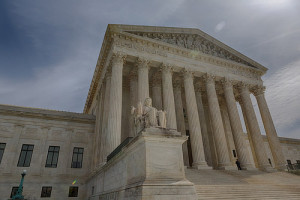Author: Jarod Bona
The US Supreme Court in AMG Capital Management, LLC v. Federal Trade Commission ends, at least for now, the FTC’s habit of seeking monetary damages in court as part of requests for equitable relief.
The decision wasn’t controversial at the Supreme Court, as it was unanimous, with former Harvard Law antitrust and administrative law guru Justice Stephen Breyer writing the opinion. But this decision stings the FTC because it shuts down their decades-long practice and does so by simply parsing the wording of the relevant statutes.
Why did it take so long to understand what the statutes said?
Background about FTC Enforcement
The Federal Trade Commission is one of those alphabet (FTC) agencies that the textbooks consider independent and full of experts. Like the Antitrust Division of the Department of Justice, which is not independent, they are executive-branch federal-antitrust-law enforcers. Their authority also includes consumer-protection concerns.
The FTC doesn’t enforce the criminal antitrust laws like the Justice Department, but when they want to pursue an action, they have options. They can sue in federal court, but—like other independent federal agencies—alternatively, they can also start the action in their own administrative agency, utilizing an administrative law judge to do the fact-finding (this can sometimes make all the difference if you incorporate deferential standards of review). This is Section 5 of the FTC Act.
But what matters here is what happens if the FTC goes directly to federal court, which they can do under Section 13(b) of the FTC Act. This Section allows the FTC to obtain from a federal court “a temporary restraining order or a preliminary injunction.” But, over the years, the FTC has also regularly convinced courts to order restitution and other monetary relief.
AMG Capital Management, LLC v. Federal Trade Commission
The issue in AMG Capital Management was “Did Congress, by enacting §13(b)’s words, ‘permanent injunction,’ grant the Commission authority to obtain monetary relief directly from courts, thereby effectively bypassing the process set forth in §5 and §19?”
The answer is no.
This is now the part where most articles would summarize the Court’s reasoning, outlining various statutory clauses, their history, and how the Court decided to interpret them. But I am going to skip that. If you are litigating an active case involving similar language or a possess a great love for administrative-agency statutory language, you will read the actual decision anyway and Justice Breyer is rather articulate. For the rest of you, there is no reason for me to show off.
I will, however, make one point about the Court’s reasoning: They address and reject the argument by amici about the policy-related importance of allowing the Commission to use §13(b) to obtain monetary relief.
And, in fact, after this decision, we heard a lot of worry about the FTC “losing” this power they never had, at least according to the highest Court in our land.
But I am happy to see the unanimous Court reject this argument. Sometimes when we are in the trees (not the forest) doing utility calculations in our highly regulated world, we forget that we have a federal government of limited powers. That means there must exist an actual concrete basis for any appendage of our government—backed by the most powerful military in the history of the world—to act against private citizens and businesses. We must never forget that. It doesn’t matter whether so-called experts think that it is “good” for certain governmental enforcers to have any particular power. If there isn’t a statutory or constitutional basis for the power, it doesn’t exist.
What Now?
The real issue is what happens now. Members of Congress, already excited about antitrust, have promised to restore this power and President Biden would certain sign such a bill.
 The Antitrust Attorney Blog
The Antitrust Attorney Blog












